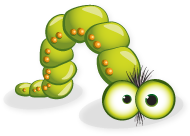Celebrating The Little Wins: Spotting Your Toddler’s Big Milestones
Watching your child grow can be an exciting and sometimes overwhelming experience. As your toddler learns new skills and reaches important milestones, it’s essential to recognise and celebrate these achievements. Each milestone marks a significant step in their development, showing progress in physical abilities, cognitive skills, language development, and social and emotional growth.
Understanding these milestones helps you better support your child’s development. It provides a roadmap for what to expect and when allowing you to create a nurturing environment that encourages growth. Celebrating these little wins can boost your child’s confidence and give them the motivation to keep trying new things.
Milestones can sometimes vary greatly from one child to another. This variation is normal, and each child’s developmental journey is unique. By focusing on your toddler’s individual progress and celebrating their personal achievements, you help them build a strong foundation for future learning and development. Recognising and supporting these milestones doesn’t just help your child grow; it strengthens your bond and adds joy to your parenting journey.
Understanding Toddler Milestones
Toddler milestones are significant events in a child’s life that indicate development in various areas, such as physical, cognitive, social, and emotional growth. These milestones act as checkpoints that help parents and caregivers monitor their child’s progress and development. Recognising these milestones is crucial as they provide insight into whether a child is developing at a typical pace.
Milestones often occur in a predictable sequence, though each child may reach them at slightly different times. It is essential to remember that each child is unique, and some may achieve certain milestones earlier or later than their peers. While standard milestone charts can be useful, it is more important to observe your child’s individual progress and celebrate their personal achievements.
Parents can support their child’s development by providing a stimulating environment that encourages exploration and learning. Play-based activities are particularly effective in promoting the acquisition of new skills. By actively engaging in your child’s growth and celebrating their milestones, you help foster an atmosphere of encouragement and motivation.
Key Physical and Motor Skill Milestones
Physical and motor skills development is a crucial aspect of a toddler’s growth. These skills involve the use of large muscles for sitting, standing, walking, and running, as well as fine motor skills for manipulating objects. Here are some key physical and motor milestones to look for:
1. Walking and Running: Most toddlers start to walk between 12 and 18 months. By the age of two, many children can run and navigate obstacles, displaying improved balance and coordination.
2. Climbing and Jumping: Around 18 months, toddlers begin to climb stairs with assistance and by age two, they often attempt to climb furniture. Jumping with both feet off the ground usually develops around the age of two to three years.
3. Fine Motor Skills: By 18 months, toddlers can usually hold a crayon and scribble, and by two years, they may start to stack blocks, turn pages in a book, and use a spoon and fork more skillfully.
4. Hand-Eye Coordination: Activities like throwing and catching a ball become more refined as children approach age three. These skills are important for later activities, including sports and academic tasks.
Encouraging physical play and providing safe spaces for movement can significantly support the development of these skills. Simple activities like playing with balls, climbing playground equipment, and drawing can help children enhance their physical and motor abilities. Celebrating these milestones not only boosts your child’s confidence but also strengthens their willingness to try new activities.
Cognitive and Language Development Achievements
Cognitive and language development during the toddler years is extraordinary as children begin to understand the world around them better. They start solving simple problems, recognising shapes and colours, and remembering past events. Here are some key milestones in cognitive and language development:
1. Recognising Objects and People: Around 12-18 months, toddlers can point to objects and name familiar people. They also begin to follow simple instructions.
2. Pretend Play: By age two, many toddlers engage in pretend play, like pretending to cook or talk on the phone. This shows they are developing abstract thinking skills.
3. Vocabulary Growth: Toddlers often experience a language explosion between 18-24 months. By age two, they may use simple sentences and have a vocabulary of about 50-100 words.
4. Questioning and Curiosity: Around age three, toddlers frequently ask questions like “Why?” and “What’s that?” This curiosity shows their growing understanding and desire to learn more about their surroundings.
To support cognitive and language development, parents can engage in regular conversations with their child, read stories, and introduce puzzles and educational toys. Celebrating these achievements, like recognising a new word or solving a simple puzzle, can motivate your child to continue exploring and learning.
Social and Emotional Growth Milestones
Social and emotional development is equally important as toddlers learn to interact with others and manage their feelings. Key milestones in this area include forming relationships, expressing emotions, and developing empathy.
1. Forming Attachments: Between 12-18 months, toddlers form strong bonds with their caregivers and may show preference for familiar people. They also begin to play alongside other children.
2. Sharing and Taking Turns: By age two, toddlers start to understand the concept of sharing and taking turns, though they might need guidance. They also begin to show empathy when someone else is upset.
3. Expressing Emotions: Toddlers learn to express a wide range of emotions, including joy, frustration, and excitement. By age three, they can label their feelings and understand simple emotions in others.
4. Independence and Self-Control: Toddlers develop a sense of independence by doing tasks themselves, like dressing or feeding. They also start learning self-control, like waiting for a turn or following rules.
Parents can foster social and emotional growth by providing opportunities for playdates, encouraging sharing, and modelling positive behaviours. Celebrating small victories, like a toddler sharing a toy, helps reinforce these important skills.
Conclusion
Recognising and celebrating your toddler’s milestones is essential for their overall growth and development. Each achievement, whether in physical abilities, cognitive skills, or social and emotional growth, is a significant step forward. By understanding these milestones, parents and caregivers can better support their child’s journey and provide the encouragement and love needed to inspire confidence and curiosity.
At Eskay Kids, we focus on creating an environment that nurtures every aspect of a child’s development through play-based learning. Our tailored programmes are designed to help children reach their potential while having fun. Discover how Eskay Kids can support your child’s growth and celebrate their every milestone by visiting our early childhood education centre today.




